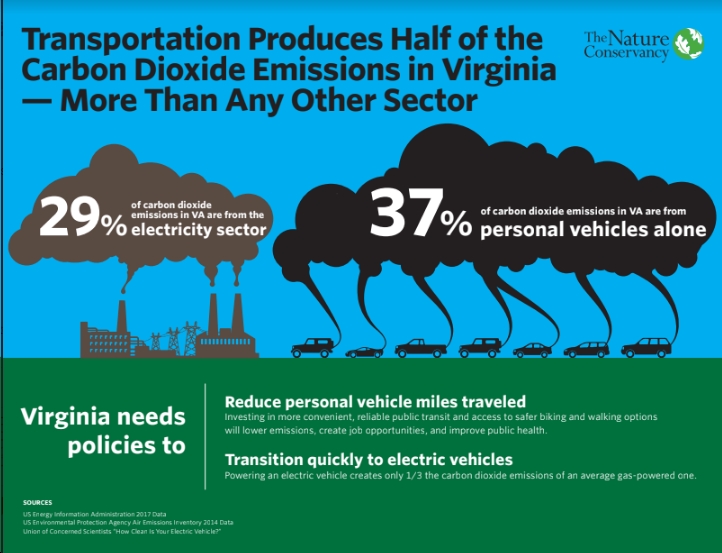 After many years of Virginia doing basically jack-shit, under Republican “leadership” (in air quotes), when it comes to addressing the climate crisis and spurring a transition from polluting fossil fuels to a clean energy economy, Democrats finally took charge of the Virginia General Assembly in 2020 and started to make progress – albeit far from sufficient – in this area. For an excellent run-down of the energy-related bills passed in the 2020 Virginia, see Ivy Main’s It was a messy, chaotic General Assembly Session. It also worked out pretty well. A few highlights include:
After many years of Virginia doing basically jack-shit, under Republican “leadership” (in air quotes), when it comes to addressing the climate crisis and spurring a transition from polluting fossil fuels to a clean energy economy, Democrats finally took charge of the Virginia General Assembly in 2020 and started to make progress – albeit far from sufficient – in this area. For an excellent run-down of the energy-related bills passed in the 2020 Virginia, see Ivy Main’s It was a messy, chaotic General Assembly Session. It also worked out pretty well. A few highlights include:
- “HB1526/SB851, the Clean Economy Act, is an omnibus energy bill that contains a two-year moratorium on new fossil fuel plants, mandatory carbon reductions, mandatory energy efficiency savings, mandatory construction of wind, solar and offshore wind, mandatory energy storage acquisition targets, mandatory closures of some coal and biomass plants, and a mandatory renewable portfolio standard, along with cost recovery provisions, a new program to limit utility bills of low-income earners, and some loosening of restrictions on net metering and third-party power purchase agreements.”
- “The Democratic takeover of the General Assembly means Virginia will finally join the Regional Greenhouse Gas Initiative (RGGI). HB981 (Herring) and SB1027 (Lewis), the Clean Energy and Community Flood Preparedness Act, directs DEQ to enter the RGGI auction market.”
- “Solar Freedom SB710 (McClellan), HB572 (Keam) and HB1184 (Lopez) lift barriers to customer-sited renewable energy such as rooftop solar.“
- ” HB414 (Delaney) and SB504 (Petersen) clarifies the respective rights of homeowners associations (HOAs) and residents who want to install solar.”
- “SB629 (Surovell) and HB1634 (Jones) creates a program for shared-solar that allows customers to purchase subscriptions in a solar facility no greater than 5 MW.”
- “SB963 (Surovell) establishes the Commonwealth Efficient and Resilient Buildings Board to advise the Governor and state agencies about ways to reduce greenhouse gas emissions and increase resiliency.”
There’s a lot more, but that gives you a flavor of what got done in the 2020 Virginia General Assembly session when it comes to clean energy. It’s all good to see, of course, and will definitely help matters, but…you knew there was a “but” coming, didn’t you? 😉 In this case, the “but” is that while the General Assembly addressed the electricity sector, it really didn’t do much of anything on two other major sectors when it comes to energy consumption and carbon emissions – the transportation and building sectors. That’s a big problem, because – as you can see below, in The Nature Conservancy graphic – the electricity sector in Virginia only accounts for 29% of the state’s CO2 emissions, while “Transportation Produces Half of the Carbon Dioxide Emissions in Virginia – More Than Any Other Sector.” Which means that unless Virginia seriously addresses carbon pollution spewing from its cars, trucks, etc. (note: we also need to address residential and commercial buildings’ energy efficiency, etc.), we’re still not going to be anywhere close to where we need to be in getting to net-zero greenhouse gas emissions.
Which brings us to the following slides by “Virginians for Clean Cars,” and also Generation180’s “Virginia Drives Electric” report. A few key points include (bolding added by me for emphasis):
- “Clean Cars Virginia is an initiative to join the 16 states that either long-ago adopted, or are considering adopting, standards to tackle air pollution from cars and trucks in a way proven to reduce fuel bills and car-ownership costs for everyday consumers.”
- “Transportation is by far Virginia’s number one source of climate pollution in a state where we already face rising seas and increasing extreme weather. 1 Clean Cars Virginia is composed of (1) low-emissions vehicle pollution standards (“LEV”) already in place in more than 35 percent of the American auto market, and (2) increased availability of zero-emissions electric vehicles (“ZEV”). These two components, LEV and ZEV, will reduce transportation pollution and expand the choices Virginians have for buying zero- and low-emission vehicles, which have been long shown to save drivers money.”
- “[W]hile the Commonwealth has begun to tackle greenhouse gas emissions from electricity generation within its
borders, it has yet to formally address emissions from the state’s growing transportation sector.“ - The benefits of clean cars for Virginians include: “Savings for vehicle owners”; “Reduced emissions of smog-forming pollutants that worsen asthma and other diseases”; “Reduced emissions of climate pollutants”; “Job and economic benefits.” Also, “The more Virginia transitions to electric vehicles, the more the Commonwealth will benefit.”
- “Driving an EV charged from the average electricity mix in Virginia (including coal-fired power plants) saves more than 8,000 tons of CO2 annually over gas-powered cars.”
- “Opposition to Clean Cars has come from lobbyists for the oil industry who fight commonsense policies to reduce the dollars that everyday consumers spend on gasoline and diesel.11 Other opponents, such as auto dealer associations, have also expressed unfounded concerns that state dealerships will only be able to offer specific types of low-emission vehicles, such as electric vehicles.” [Note: one of these auto dealers is Geoffrey Pohanka, President of Pohanka Auto Group, active in the Auto Dealers Associations and an ardent climate denier. His bizarre climate science denial blog (isthereglobalcooling.com) is filled with just about every false trope you can think of in the climate denialist world – polar bear populations increasing! the rate of sea level rise not increasing! the polar ice caps are NOT melting! blah blah blah. Even worse, Pohanka is on the National Auto Dealers Association Board of Directors, is a Board member of the Washington Area New Automobile Dealers Association, etc. This is the type of person opposed to Virginia adopting advanced clean car standards. ‘Nuff said.]
- “In a 2020 consumer survey, 53% of Virginians said they
were likely or very likely to consider an EV for their next car.“ - “Overall electric vehicle inventory was 44-54% lower in Virginia cities than in comparable cities in Maryland” and “A lack of inventory is preventing Virginians who want to go electric from finding the car they need at a dealership in
Virginia.” - “In our survey of Virginia consumers, over half of respondents reported that proximity to a public charging station would make them more likely to consider purchasing an EV.”
- “Although Virginia offers no state-level financial incentives for EVs and hasn’t adopted any advanced clean car standards that require manufacturers to make low-to-no emission models available, EVs still have a surprisingly strong presence in the state. The Commonwealth currently ranks 13th in the nation in total EV sales,36 highlighting consumer demand.”
- “State-level policy can have a meaningful impact on electric vehicle adoption, but Virginia is lacking in pro-EV policies.”
- Next steps: “Once the legislation is passed, the Virginia Air Pollution Control Board will adopt the LEV and ZEV standards (already in place in other states) as soon as 2021, to ensure that Virginia’s Model Year 2025 vehicles will be cheaper and cleaner.”
- “For Virginia to remain relevant in the nationwide transition to EVs, we recommend the Commonwealth take the following three actions: Adopt the Advanced Clean Cars Program vehicle standards; Fund a point-of-sale EV rebate; Sign the Transportation and Climate Initiative MOU.”
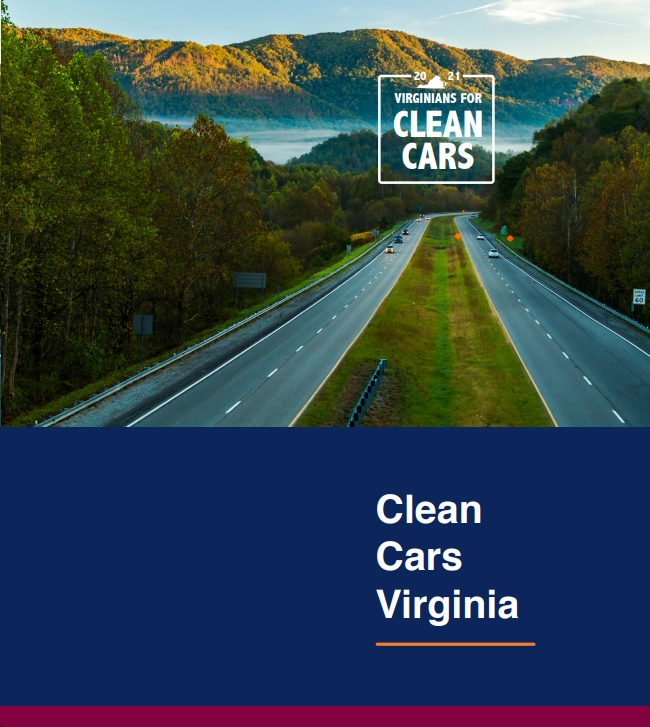
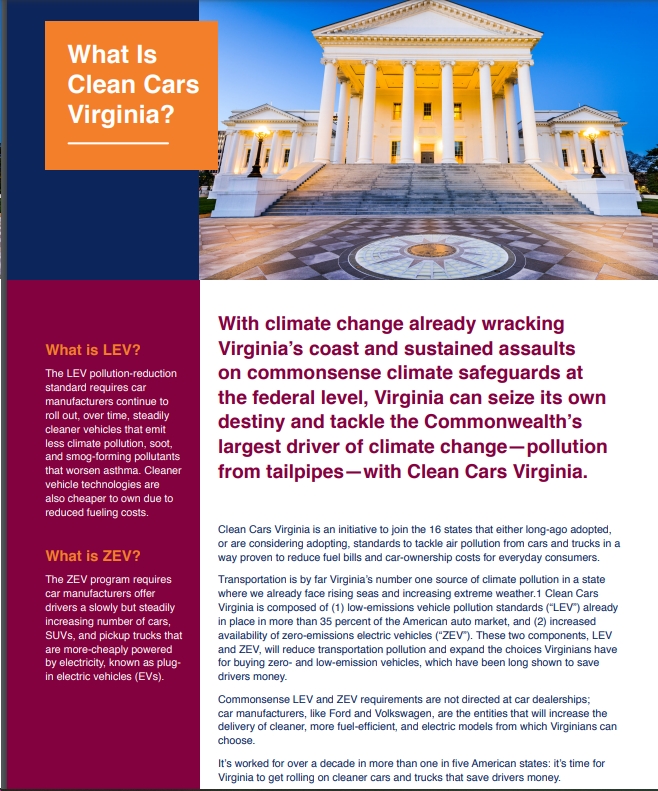
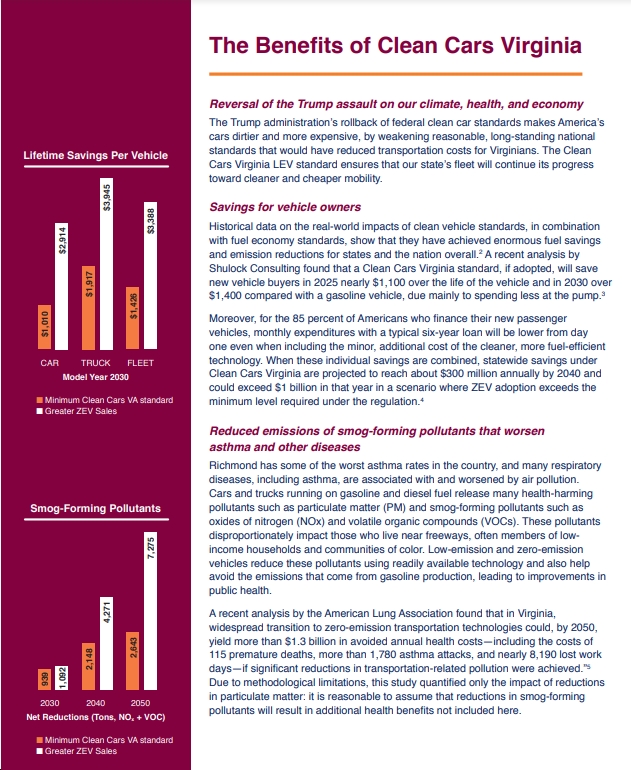
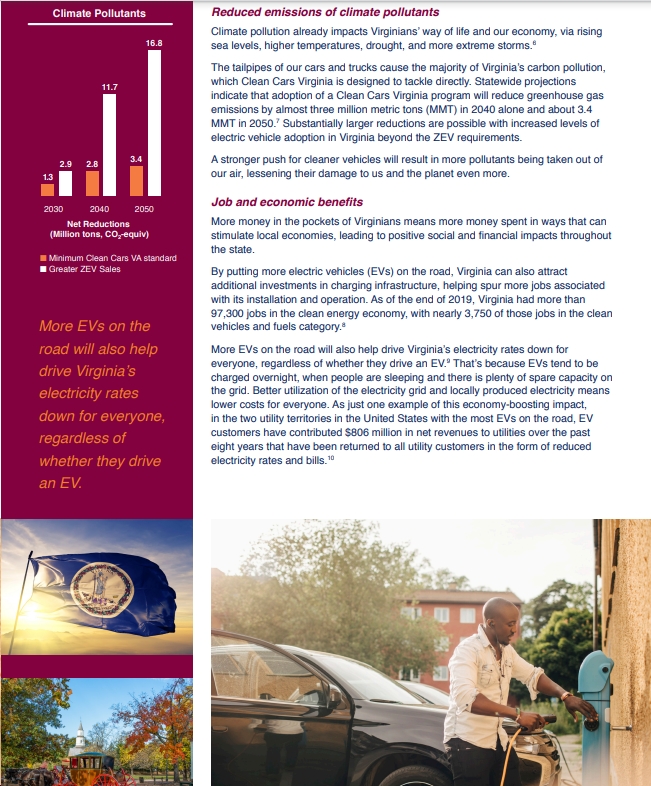
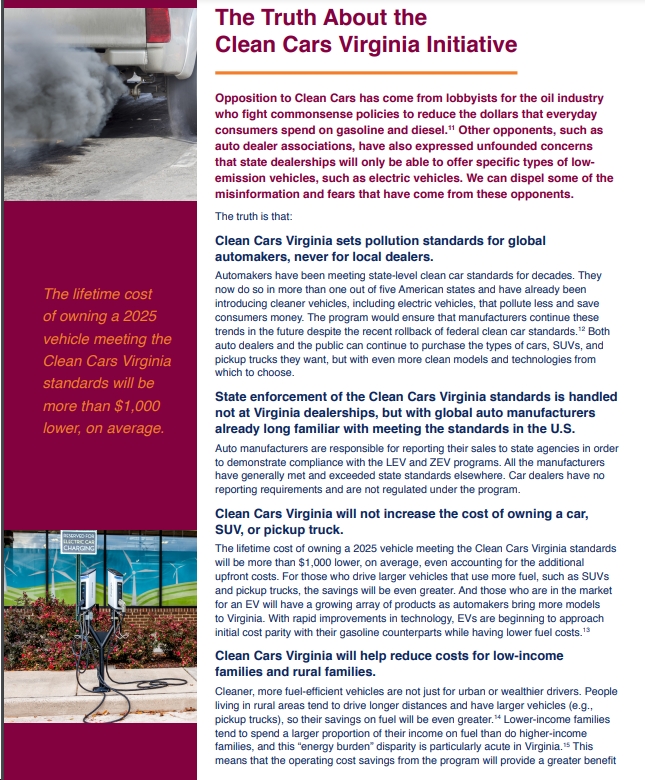
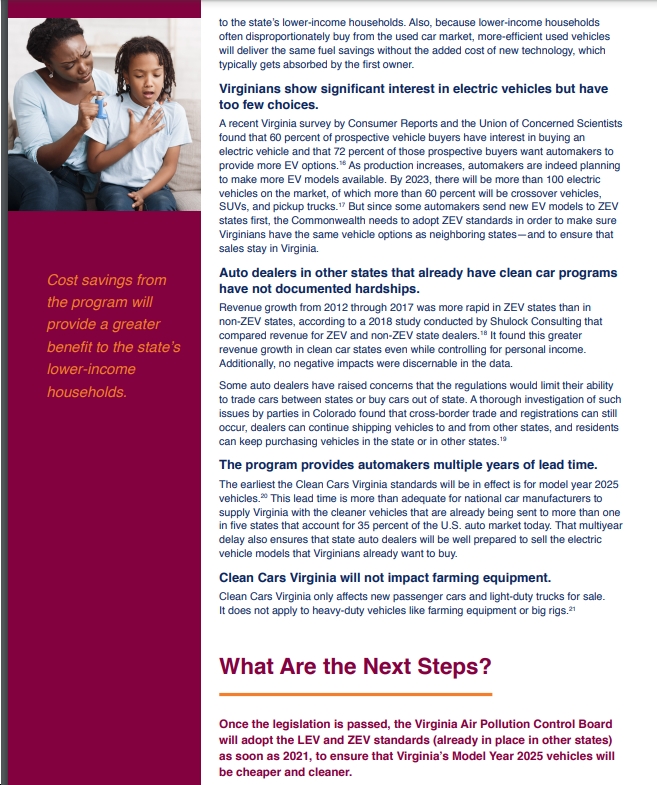
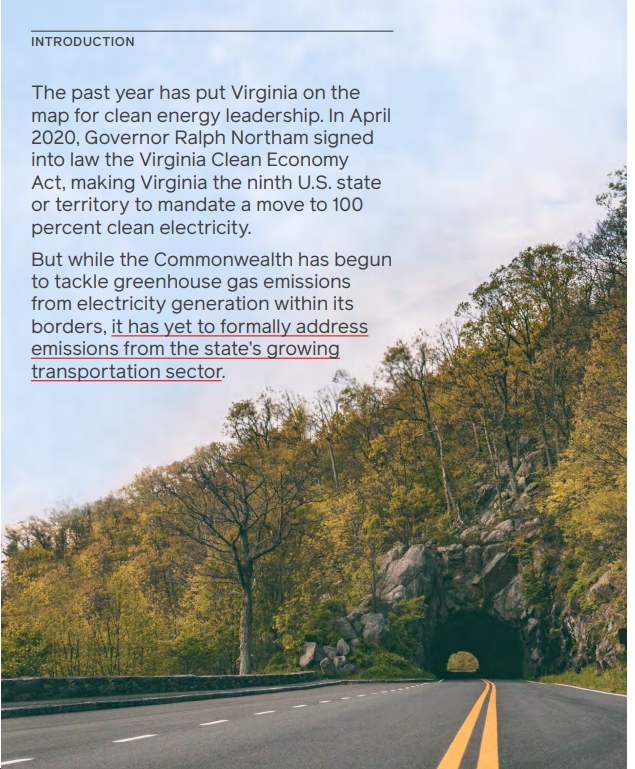
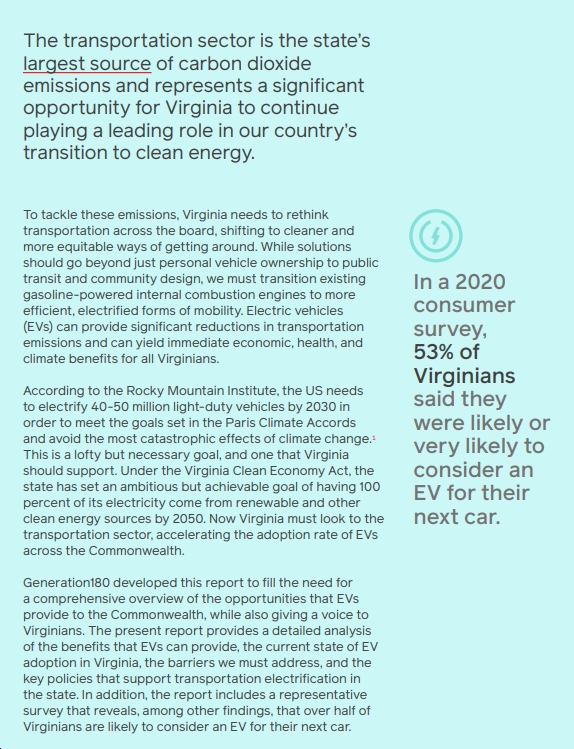
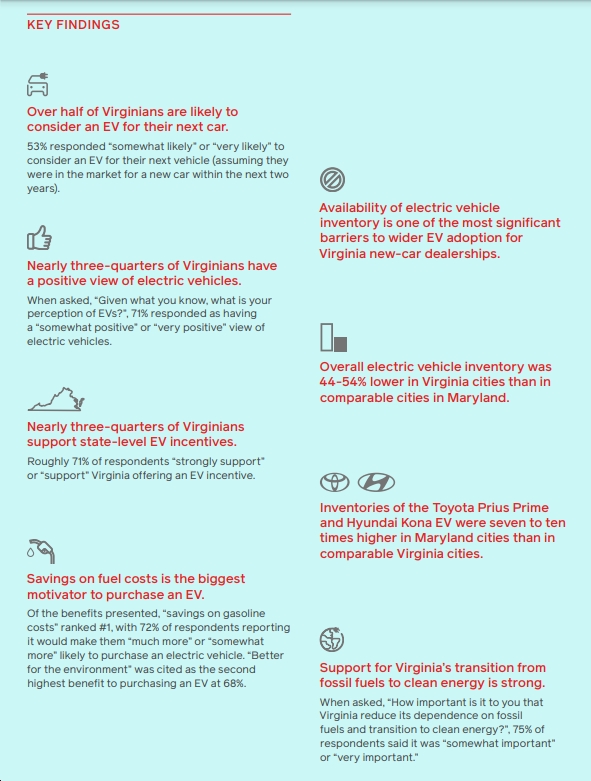
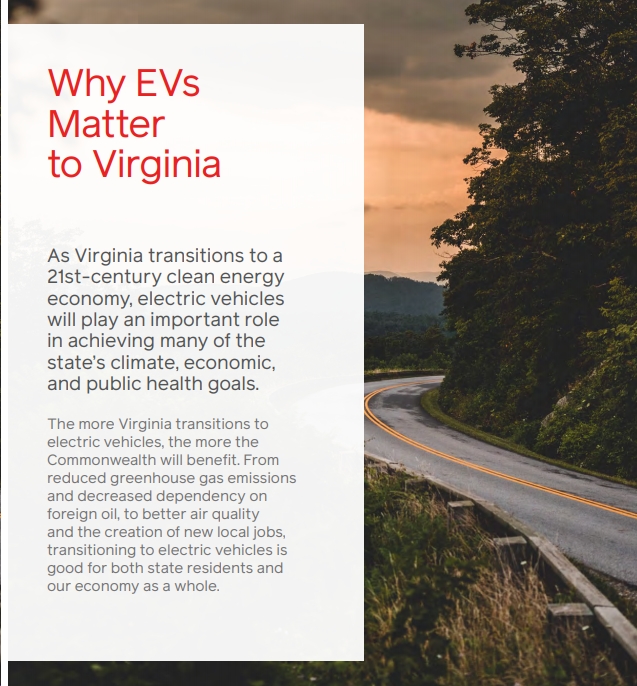
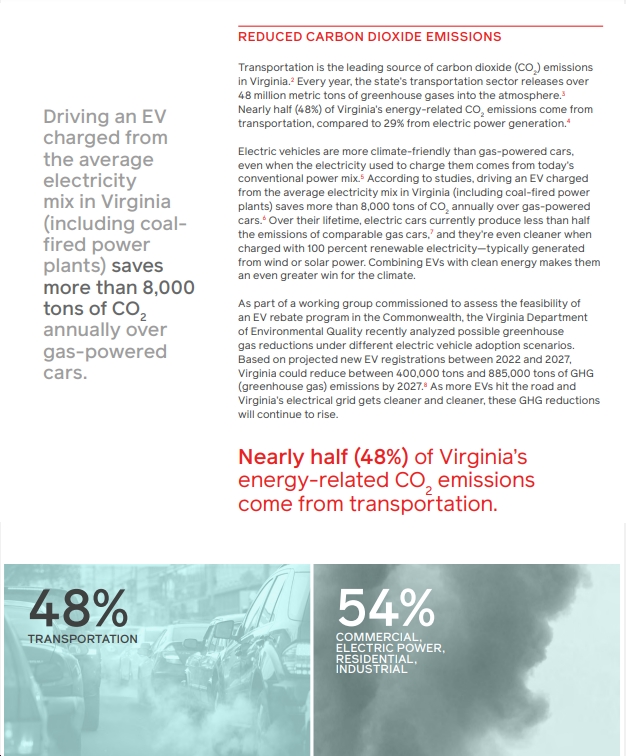
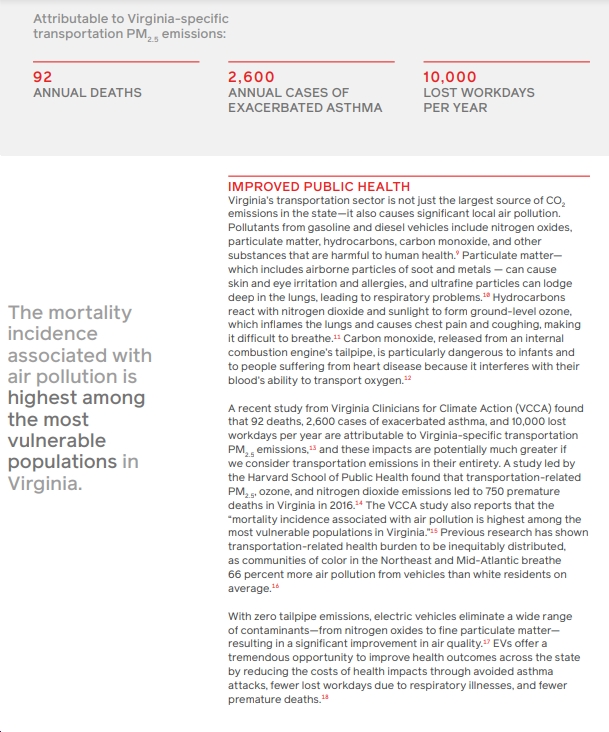
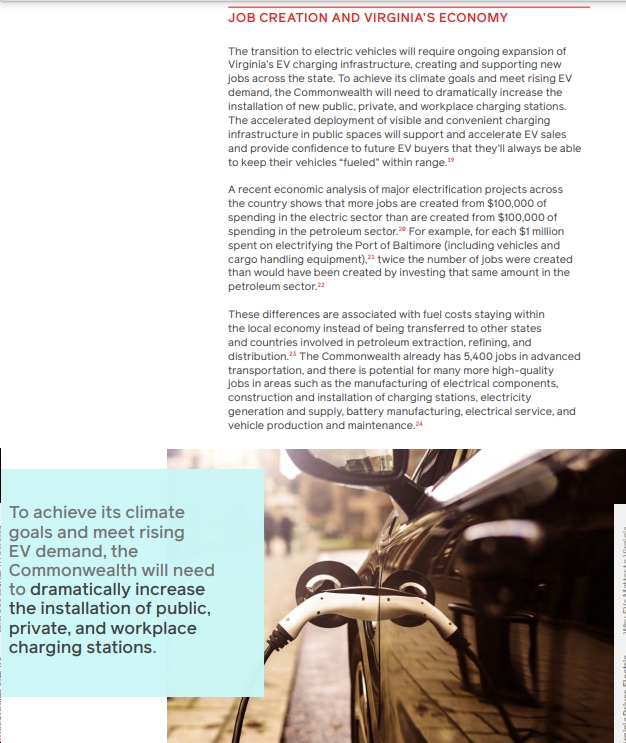
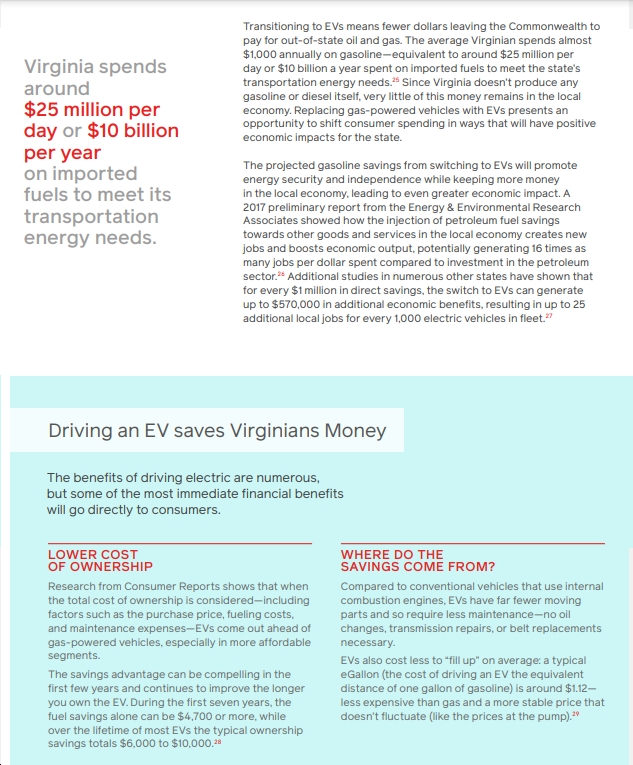
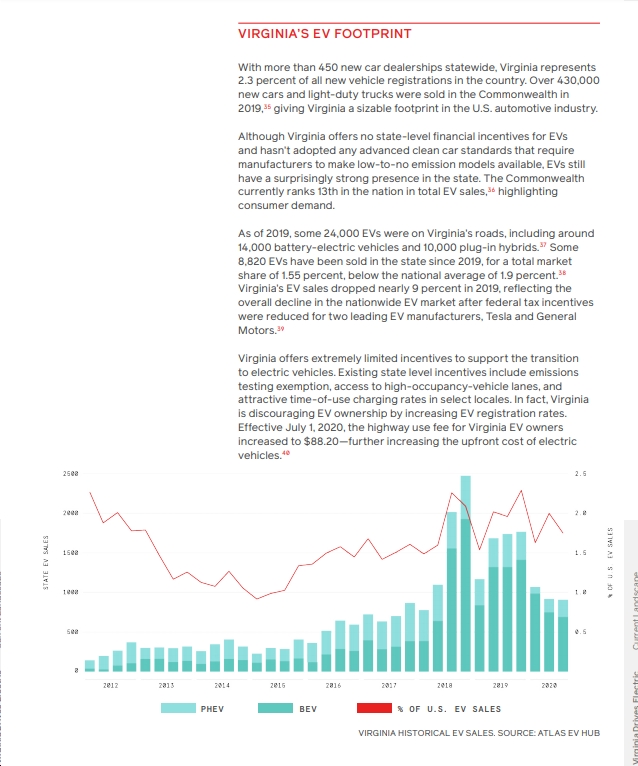
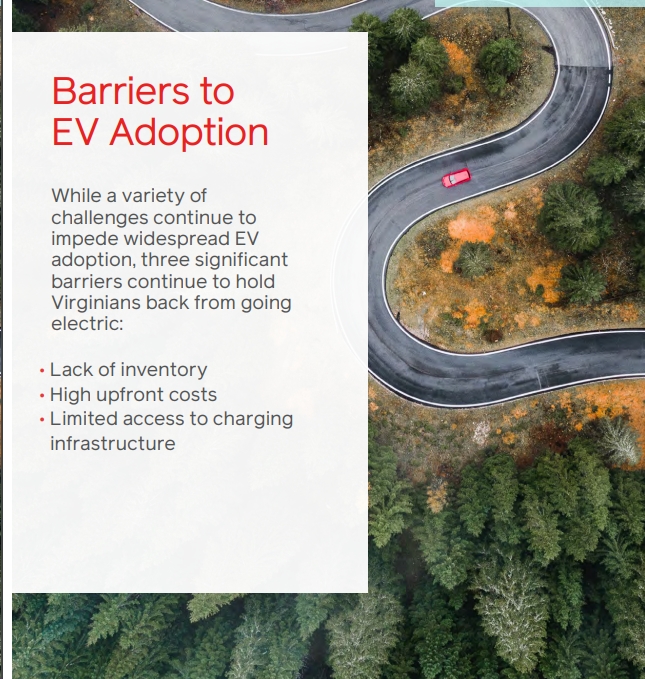
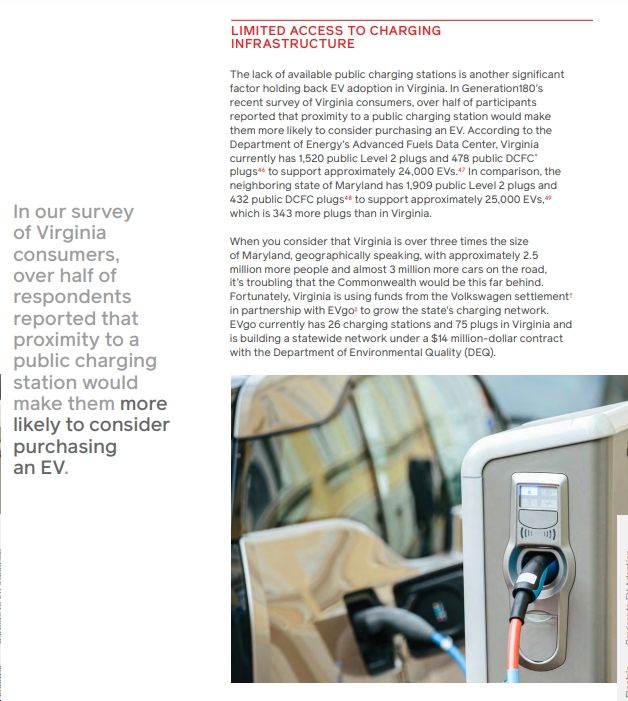
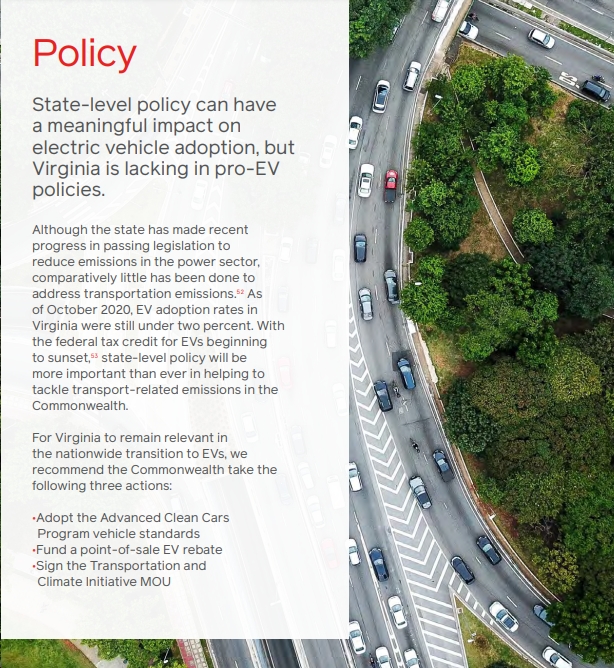
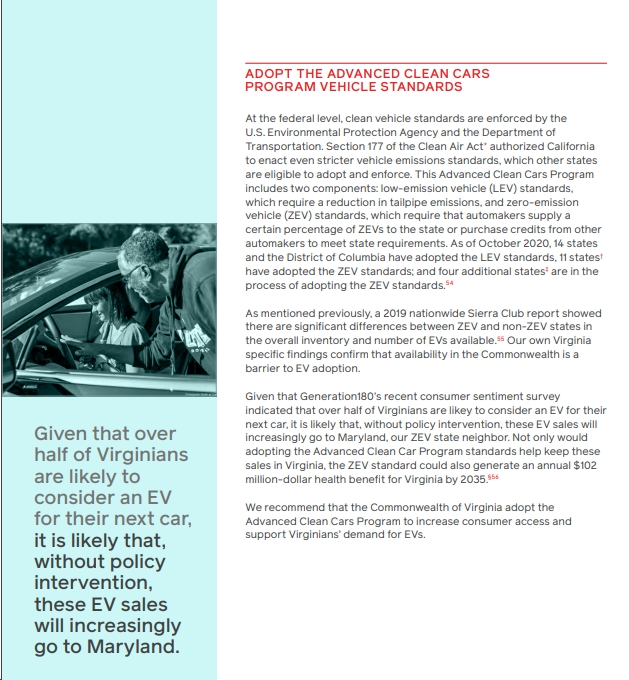
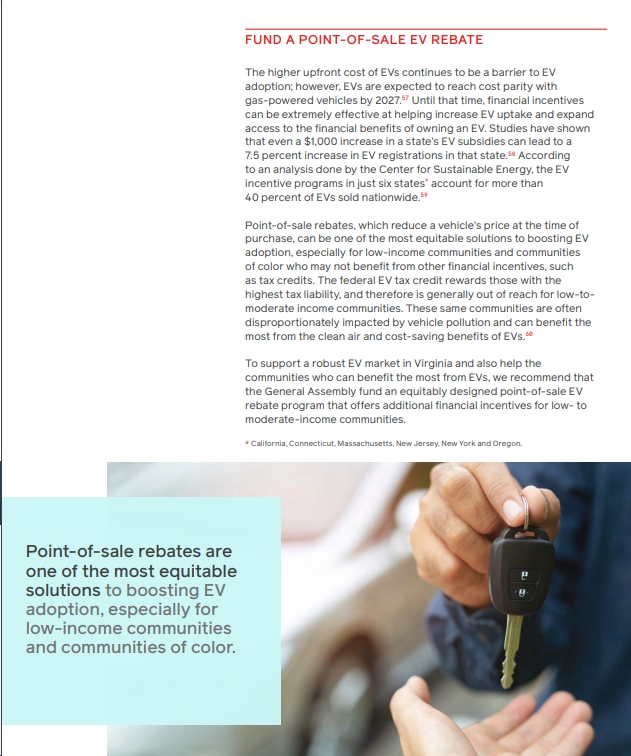
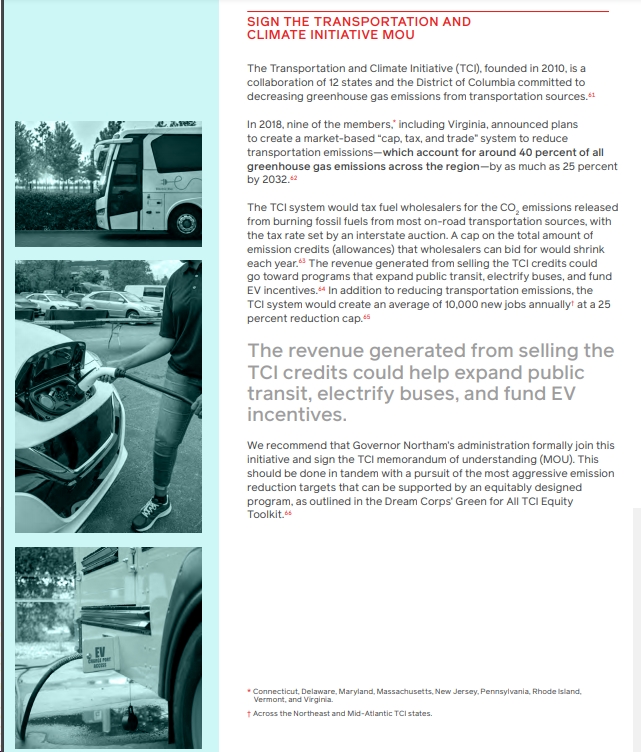
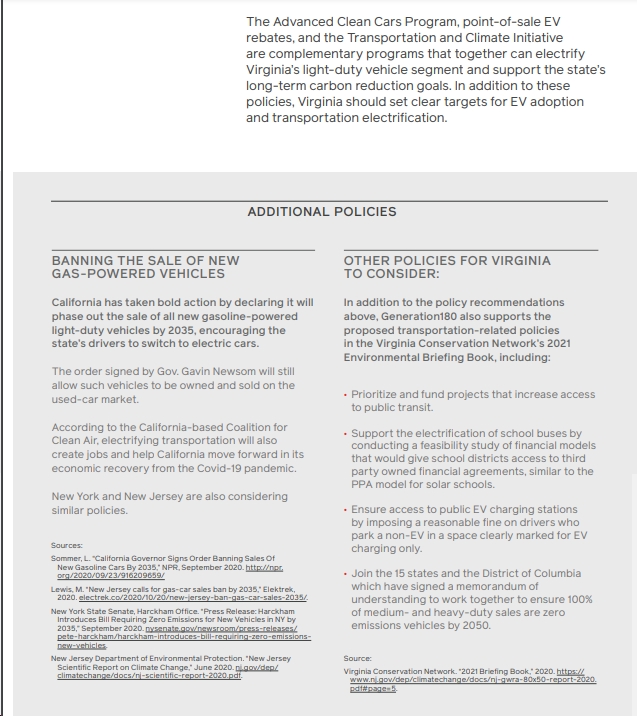
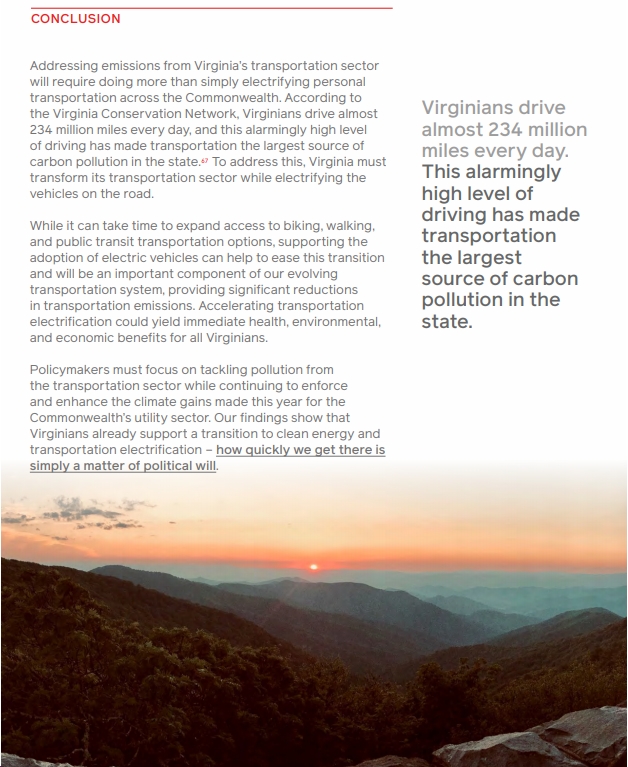




![Sunday News: “Trump Is Briefed on Options for Striking Iran as Protests Continue”; “Trump and Vance Are Fanning the Flames. Again”; “Shooting death of [Renee Good] matters to all of us”; “Fascism or freedom? The choice is yours”](https://bluevirginia.us/wp-content/uploads/2026/01/montage011126.jpg)
![VA DEQ: “pollution from data centers currently makes up a very small but growing percentage of the [NoVA] region’s most harmful air emissions, including CO, NOx and PM2.5”](https://bluevirginia.us/wp-content/uploads/2026/01/noxdatacenters.jpg)

![Thursday News: “Europe draws red line on Greenland after a year of trying to pacify Trump”; “ICE Agent Kills Woman, DHS Tells Obvious, Insane Lies About It”; “Trump’s DOJ sued Virginia. Our attorney general surrendered”; “Political domino effect hits Alexandria as Sen. Ebbin [to resign] to join Spanberger administration”](https://bluevirginia.us/wp-content/uploads/2026/01/montage010826.jpg)











